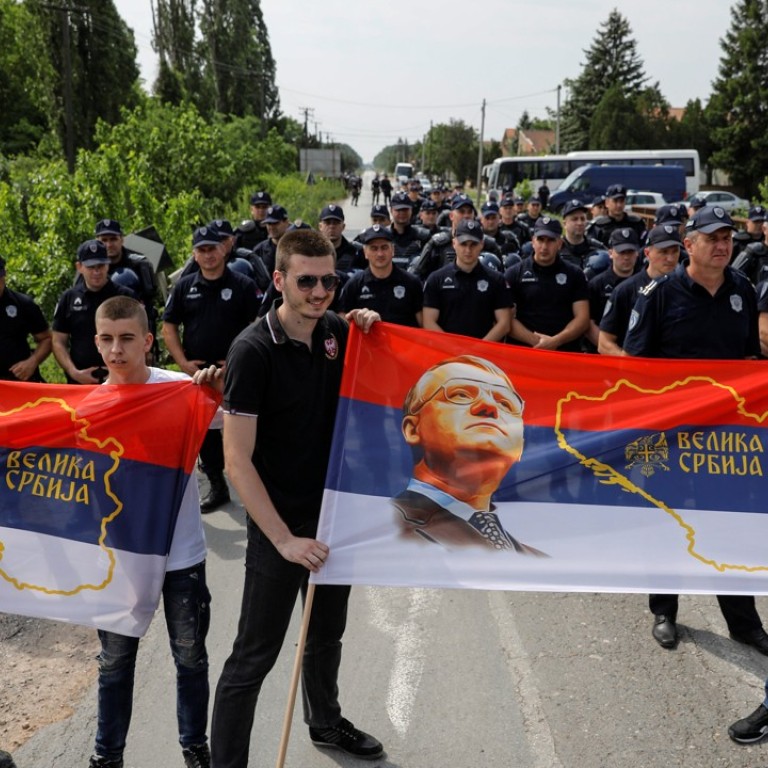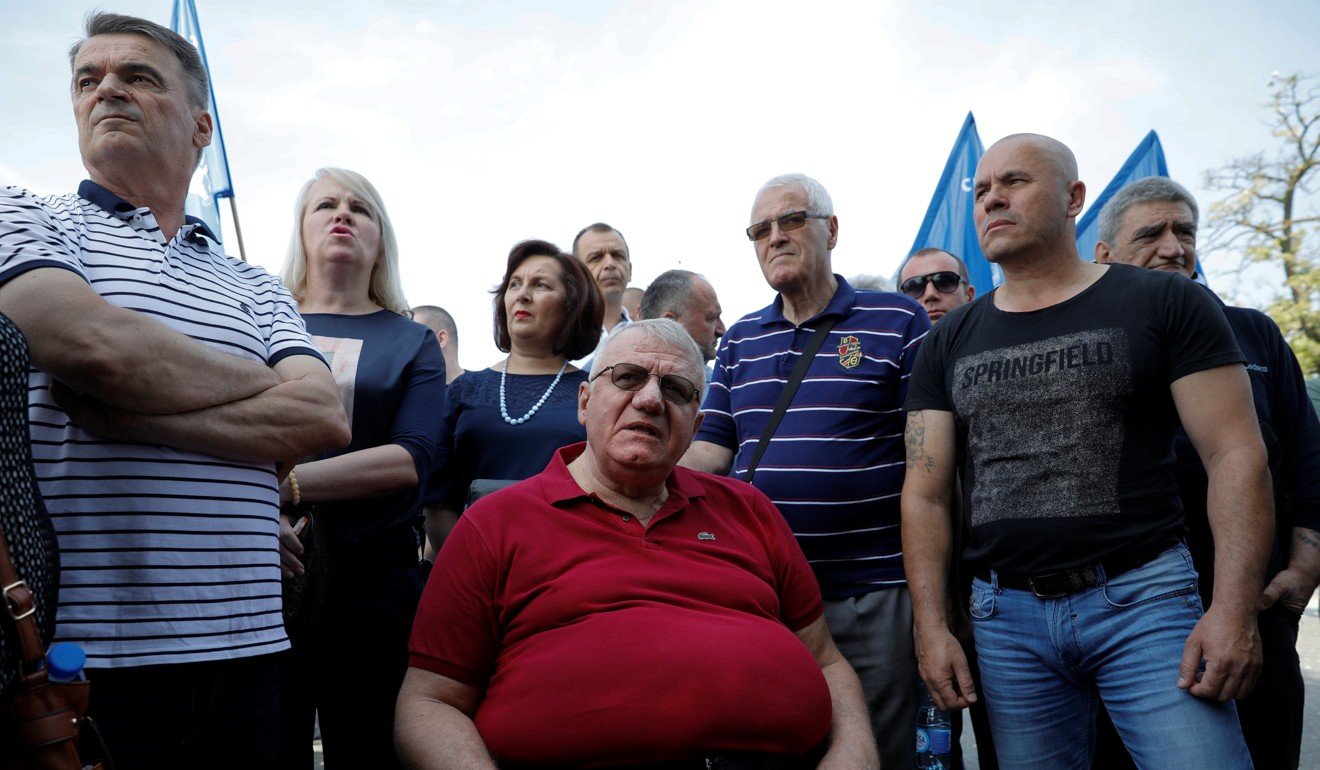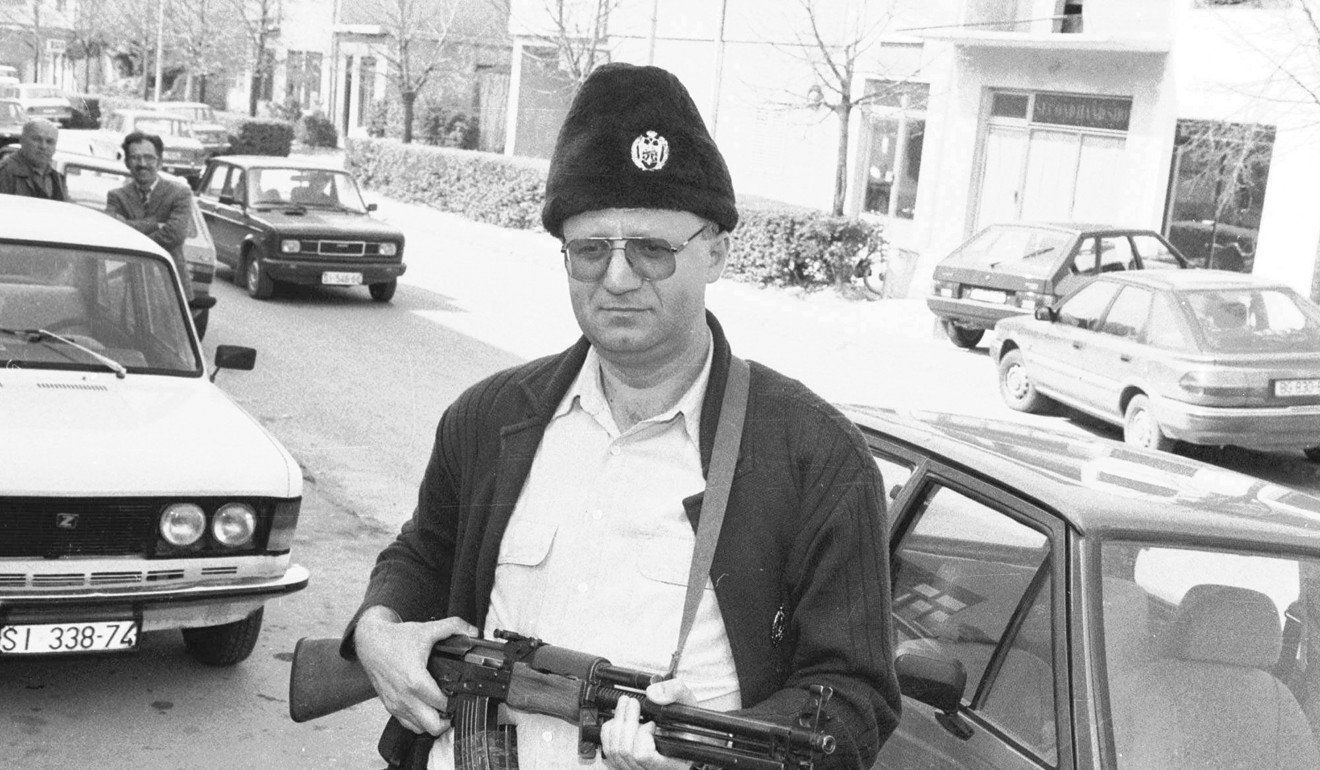
Serbian ex-warlord tried to hold a rally in town where he committed crimes against humanity
Vojislav Seselj revels in the spotlight, and his attempted return to Hrtkovci is the latest stunt in a career often defined by spectacle
It’s been less than been a month since a United Nations court in The Hague found former Serbian warlord Vojislav Seselj guilty of crimes against humanity.
The judgment centred on a speech Seselj gave in the village of Hrtkovci in May 1992 that prosecutors claimed incited violence against Serbia’s Croatian minority.
Then, on Sunday – the 26th anniversary of his inflammatory speech – Seselj attempted to return Hrtkovci to hold an ultra-nationalist rally.
He and his supporters were greeted by dozens of police, who blocked his entrance to the village out of fear it would spark clashes with counterprotesters. Some opponents stood by the roadblock holding a sign that called him a war criminal.
“We wanted to have a peaceful rally, and the regime banned it without any reason,” Seselj, 63, told reporters.

Seselj, who holds a seat in parliament and leads the Serbian Radical Party, revels in the spotlight, and his attempted return to Hrtkovci is the latest stunt in a career often defined by spectacle.
In 2003, he drew a pistol on a political opponent on the floor of Serbia’s parliament. In 2006, after he had been placed in pre-trial detention in The Hague, he went on hunger strike to demand that he be allowed to represent himself.
And in 2007, he expressed regret that the death penalty was not a possible outcome for him “so that proudly, with dignity, my head upright like my friend Saddam Hussein, I could die and put the final seal on my ideology,” he said.
“It would become immortal. I have lived long enough.”

Prosecutors accused Seselj of forcibly deporting Croats during the wars of the 1990s, which killed more than 100,000 people and eventually broke apart the former country of Yugoslavia.
Seselj, they said, incited the torture and murder of Croats and persecuted them based on their religion and race.
Seselj had been acquitted on all charges in 2016, but prosecutors appealed the verdict, which was then partially overturned last month.
He was found guilty of “instigating persecution, forcible displacement, deportation, and other inhumane acts” and sentenced to 10 years in prison, but dodged jail time because he had already spent more than 11 years in pretrial detention in The Hague.
His opponents welcomed the result of the appeal in April, although the Croatian foreign ministry said that Seselj’s sentence was ultimately “too lenient in relation to the committed crimes.”
Those opponents have pointed to the conviction as evidence that Seselj should give up his current seat in parliament.
Under Serbian law, a member of parliament’s term is forfeited if they are sentenced to six or more months in jail. Seselj claims that provision does not apply to him because of his earlier time served.
As for Seselj, he has always been unrepentant. After he was found guilty of crimes against humanity in April, he said that he is “proud of all the war crimes and crimes against humanity that were attributed to me, and I am ready to repeat them in the future.”
“We will never give up the idea of a Greater Serbia,” he said after his 2016 acquittal.
“I do not feel guilty of anything.”

